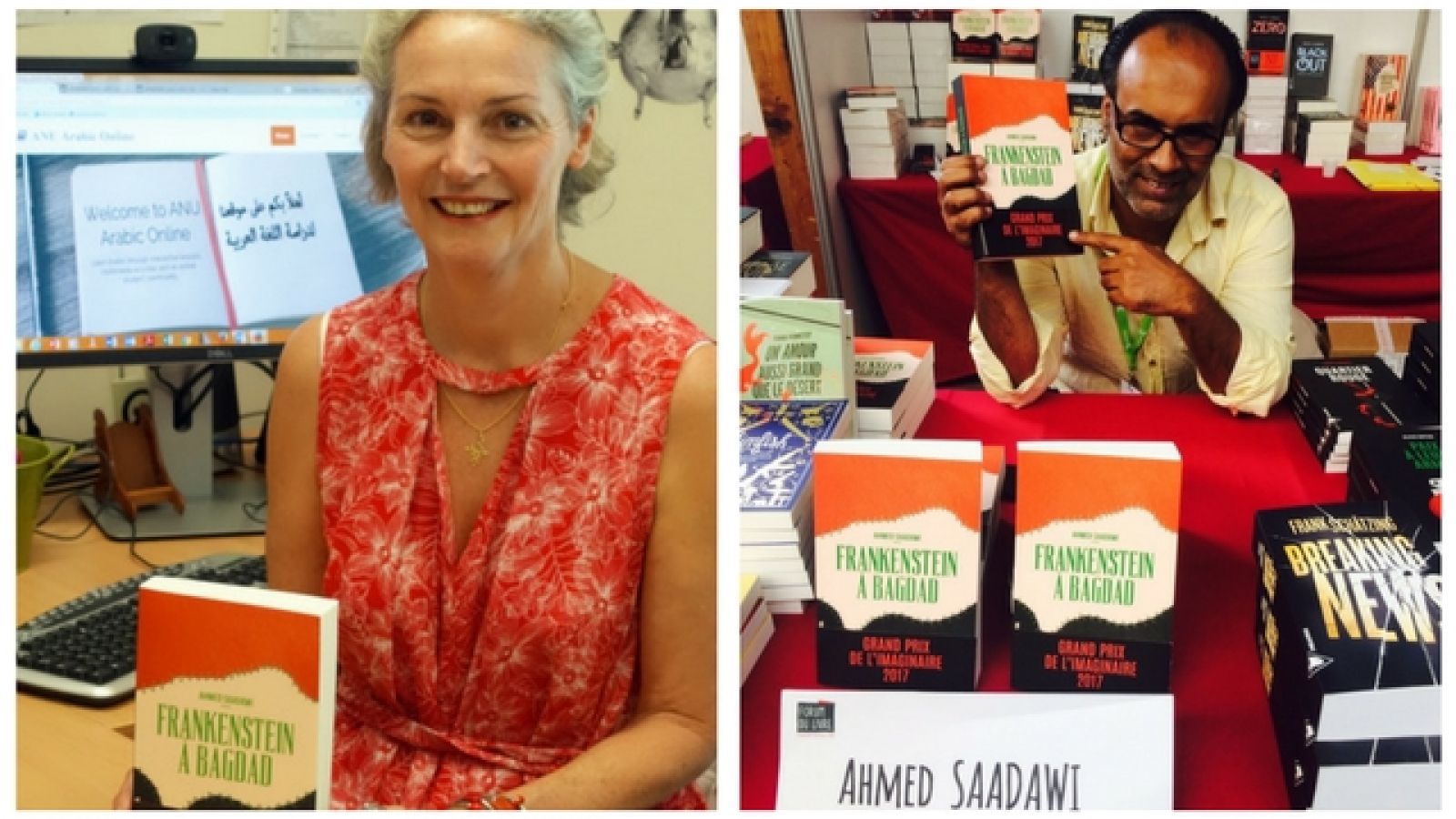ANU academic’s translation of Arabic Frankenstein novel wins major "literary award in the category of Foreign Literature" in France

France Meyer (left), and Frankenstein in Baghdad author Ahmed Saadawi (right).
An ANU academic’s translation of an Arabic Frankenstein novel has won France’s highest award for literary science fiction, the Grand Prix de l’Imaginaire 2017.
It’s the latest accolade for France Meyer, whose translation of Frankenstein in Baghdad by Iraqi author Ahmed Saadawi, has received wide acclaim by the French publishing industry.
“I was delighted that my translation had been selected for the Grand Prix de l’Imaginaire, which is the oldest and most prestigious French prize devoted to the genre of literary science-fiction,” the Centre for Arab and Islamic Studies-based lecturer says.
“This is the first time a novel by an Arab writer is awarded such prize and this celebrates the role and achievements of literary translation.
“I hope this success will contribute in a humble way to the University’s international reputation in the fields of literature and literary translation.”
Centre Director, Professor Amin Saikal, is thrilled by France’s honour.
“It is an enormous achievement and well-deserved. I am delighted for France, and pleased that such an award is given to one of our staff.”
The novel was the 18th book France has translated over her 30-year career as a literary translator specialising in Modern Arabic Literature.
“I started reading it with mixed feelings as I am not usually drawn to fantasy literature or anything to do with ghosts, blood or unearthly creatures. The title itself was enough to scare me off,” France says.
“However, the novel proved to be a real page-turner based on historical facts, very well structured and written, with all the necessary elements to keep the reader on its feet, and true literary style and creativity.”
One character France particularly liked was Hadi, a rag-and-bone man and boisterous storyteller who unintentionally gives life to a Frankenstein-like monster and tries to pretend it remains a creature of his imagination.
“Storytellers fascinate me,” she says.
“I come from Morocco where storytelling is a very popular art form, and I spent many days of my life listening to street entertainers, storytellers, illusionists and other tricksters and snake charmers who thrive on the bustling marketplaces and souks of the Arab world.”
French publishing house Piranha initially asked France to review the novel, which won the International Prize for Arabic Fiction in 2014, the Arab world’s equivalent of the Booker Prize. Her review prompted Piranha to commission a translation.
Mr Saadawi does not speak French or English, so he and France communicated in Arabic via email during the 18 months it took France to translate the book.
“Mr Saadawi was always willing to explain a point of grammar or a nuance of Iraqi dialect, discuss any element of the plot that I found confusing, and correct any inconsistencies or inadvertent ambiguities of the storyline exposed by the deep and thorough research inherent to the translating process,” France says.
“This was essential to maintain structural, narrative, and linguistic integrity and to ensure the accuracy and authenticity of the translation.”
France’s publisher has asked her to review Ahmed Saadawi’s latest novel Baab al-Tabaashiir, The Chalk Door, which is another bestseller in the Arab world.